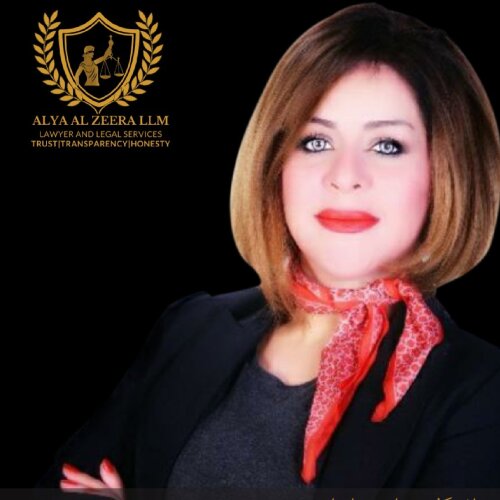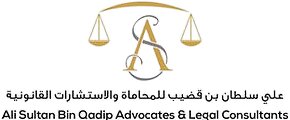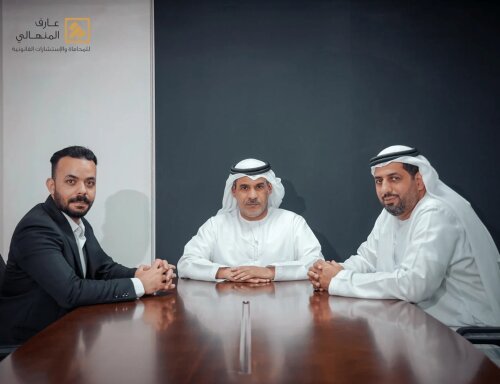Best Collaborative Law Lawyers in Dubai
Share your needs with us, get contacted by law firms.
Free. Takes 2 min.
Free Guide to Hiring a Family Lawyer
List of the best lawyers in Dubai, United Arab Emirates

Kaaseb Mohammed Al Hassani Advocates & Legal Consultants
30 minutes Free ConsultationAbout Collaborative Law in Dubai, United Arab Emirates
Collaborative Law is an alternative dispute resolution practice that seeks to resolve legal disputes through cooperation and negotiation between parties. In Dubai, UAE, Collaborative Law is gaining recognition for its effectiveness in managing conflicts, particularly in family law and business disputes. This approach is characterized by both parties working together respectfully and creatively to reach a mutually beneficial agreement, often with the assistance of trained collaborative lawyers. The practice is guided by principles of transparency, voluntary participation, and confidentiality, allowing parties to avoid the adversarial nature of traditional litigation.
Why You May Need a Lawyer
There are various situations where the assistance of a collaborative lawyer could be invaluable. For instance, during family disputes such as divorce or custody arrangements, a lawyer can facilitate open communication and negotiation. Collaborative Law is also useful in business disputes, where preserving ongoing relationships is crucial. Additionally, collaborative lawyers can assist with drafting agreements that reflect the negotiated solutions, ensuring that all parties' interests are legally protected and clearly outlined.
Local Laws Overview
In Dubai, the application of Collaborative Law is influenced by both Sharia law and civil law principles. Family law issues, in particular, are predominately guided by the UAE Personal Status Law, which incorporates Sharia principles. However, Collaborative Law is adaptable and permits parties to design their agreements while remaining compliant with local legal standards. The Dubai legal system supports alternative dispute resolutions, and the Dubai International Financial Centre (DIFC) Courts and the Dubai Courts both recognize the outcomes of collaborative processes, provided they adhere to the required legal formalities.
Frequently Asked Questions
What is Collaborative Law?
Collaborative Law is a legal process that involves resolving disputes outside of court through negotiation and cooperation between parties, with the assistance of specially trained lawyers.
How does Collaborative Law differ from traditional litigation?
Unlike traditional litigation, Collaborative Law focuses on mutual problem-solving rather than confrontation. It encourages openness, trust, and cooperation to reach amicable settlements.
What types of disputes are suitable for Collaborative Law?
Collaborative Law is suitable for a range of disputes, including family law issues, business disagreements, employment disputes, and contracts. It is particularly effective where preserving relationships is important.
Is Collaborative Law recognized in Dubai?
Yes, Collaborative Law is recognized and supported as a method of dispute resolution in Dubai, especially within the realms of family and commercial law.
Do I need a special lawyer for Collaborative Law?
Yes, it is advisable to hire a lawyer who is trained in collaborative practices, as they have the specific skills and mindset to facilitate this type of dispute resolution.
Can Collaborative Law be used in divorce cases?
Absolutely. Collaborative Law is widely used in divorce cases to avoid hostile court battles and to conclude agreements regarding child custody, asset division, and other relevant matters.
What happens if an agreement is not reached?
If an agreement cannot be reached through Collaborative Law, parties can resort to mediation or litigation as necessary. However, the collaborative lawyers step down, and new legal representation is usually sought for court proceedings.
How long does a collaborative process typically take?
The duration varies depending on the complexity of the issues and the willingness of parties to cooperate. It often takes less time than litigation because the process encourages efficient communication and negotiation.
Is the collaborative process confidential?
Yes, one of the core principles of Collaborative Law is confidentiality. This encourages open and honest communication during the negotiation process.
Can Collaborative Law agreements be enforced in Dubai?
Yes, once a collaborative agreement is reached, it can be formalized through the courts and become legally binding, provided it adheres to local legal requirements.
Additional Resources
For more information about Collaborative Law in Dubai, consider reaching out to the Dubai International Arbitration Centre (DIAC), the UAE Ministry of Justice, or local chapters of the International Academy of Collaborative Professionals (IACP). These organizations can provide guidance, referrals to trained collaborative lawyers, and additional resources to support your needs.
Next Steps
If you require legal assistance in Collaborative Law, your first step should be to consult with a lawyer who specializes in this area. They can help determine if this approach is suitable for your situation and guide you through the process. You can search for collaborative lawyers through legal directories, professional associations, or by seeking referrals from trusted sources. Prepare to discuss your case with potential lawyers and ensure they have the appropriate credentials and experience in Collaborative Law.
Lawzana helps you find the best lawyers and law firms in Dubai through a curated and pre-screened list of qualified legal professionals. Our platform offers rankings and detailed profiles of attorneys and law firms, allowing you to compare based on practice areas, including Collaborative Law, experience, and client feedback.
Each profile includes a description of the firm's areas of practice, client reviews, team members and partners, year of establishment, spoken languages, office locations, contact information, social media presence, and any published articles or resources. Most firms on our platform speak English and are experienced in both local and international legal matters.
Get a quote from top-rated law firms in Dubai, United Arab Emirates — quickly, securely, and without unnecessary hassle.
Disclaimer:
The information provided on this page is for general informational purposes only and does not constitute legal advice. While we strive to ensure the accuracy and relevance of the content, legal information may change over time, and interpretations of the law can vary. You should always consult with a qualified legal professional for advice specific to your situation.
We disclaim all liability for actions taken or not taken based on the content of this page. If you believe any information is incorrect or outdated, please contact us, and we will review and update it where appropriate.















